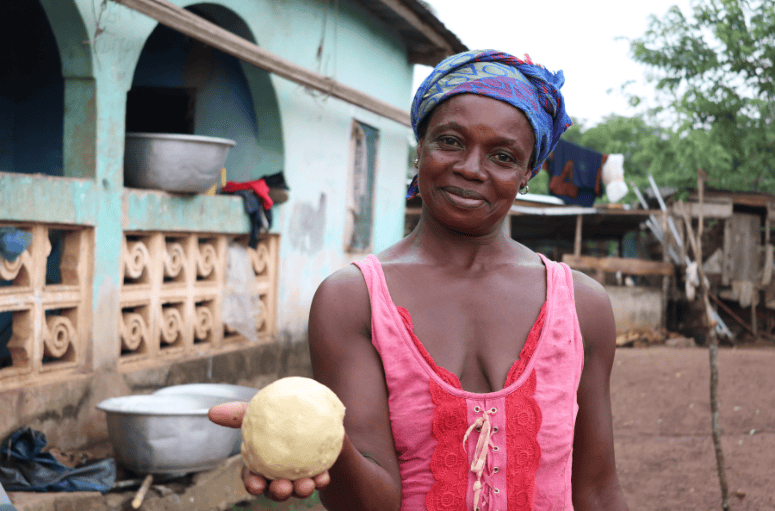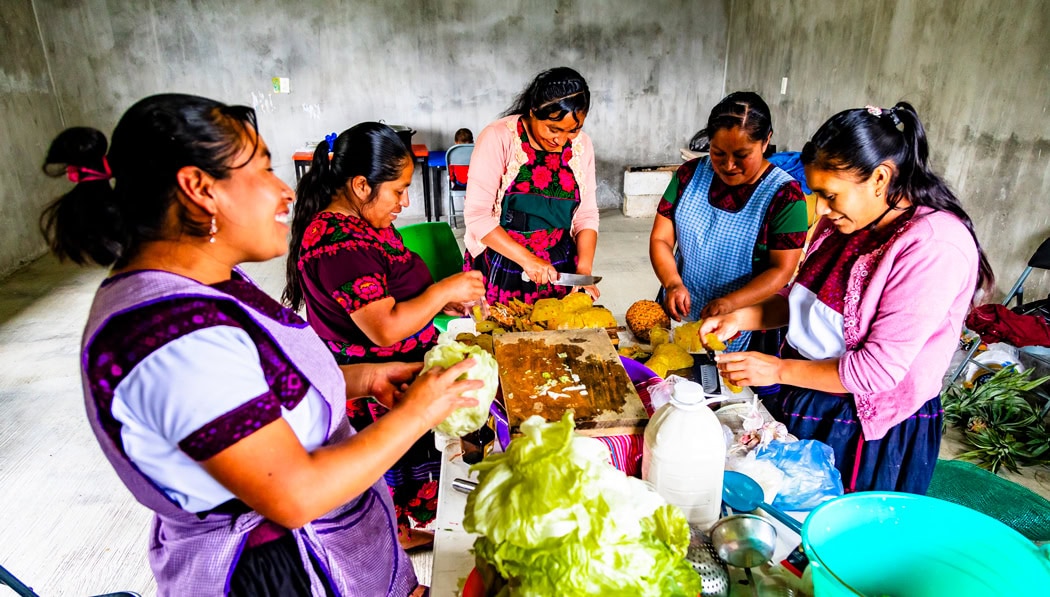On this World Food Day, we stand with partners around the globe under the theme “Hand in Hand for Better Foods and a Better Future.” At The Hunger Project, we believe the right to food is a fundamental human right, and that ending hunger is possible.
We mobilize smallholder farmers — especially women and youth — to lead their communities toward self-reliance. By investing in local leadership and community-led solutions, we ensure people are architects of their own food systems.
The 2025 UN SOFI report shows that 673 million people experience chronic hunger worldwide. While this is a slight improvement, progress is uneven, with hunger rising in parts of Africa and Western Asia. Systems of inequity continue to perpetuate hunger, which is why our work focuses on long-term, sustainable solutions.
In 2024, our programs reached nearly 13 million people, resulting in:
- 20% decrease in hunger
- 16% increase in access to basic drinking water
- 22% increase in female youth participating in education and training
- 14% decrease in child marriage
- 92% of partners reporting increased access to healthy meals
The Right to Grow Initiative
In Uganda, we mobilize communities to improve access to clean water, healthier pregnancies, and reduced childhood malnutrition. Through the Right to Grow (R2G) initiative, communities collect their own nutrition, water, sanitation, and hygiene (WASH) data to advocate for policy change.
Naigaga Justine, a smallholder farmer and mother of six, joined His Grace Mothers’ Club, where she learned to make soap and grow vegetables for income. Her profits now help send all her children to school.

Building Resilient Food and Income Systems
In Ghana, our programs promote income-generating initiatives that improve access to nutritious food. Adwoa, a community leader who faced significant climate challenges, learned to make and sell shea butter soap at her local Epicenter. Her new business supports her and her children, demonstrating how economic empowerment strengthens food security.

Food Sovereignty Through Community-Led Development
In Mexico, we work with Indigenous communities in Chiapas, Oaxaca, Yucatán, and Mexico City to secure the right to food. Our Eat Well Program promotes food sovereignty through local, climate-resilient crops, nutritional guides, and women-led enterprises.
Communities engage in advocacy and collaborate with government platforms like the Conferencia Regional de la Mujer, transforming the relationship from dependency to active partnership to ensure food security and sustainable livelihoods.
By investing in community-led development, The Hunger Project is helping millions of people worldwide take ownership of their food systems — proving that when people are empowered, they can create better foods and better futures.
The post World Food Day 2025 appeared first on The Hunger Project.


